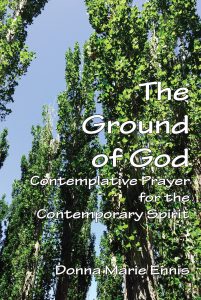Teaching How to Experience God
At my home church, Chumuckla Community Church, we’re going through the Experiencing God workbook. There will be 10 sermons, and then discussion groups. My wife Jody leads one right after church each Sunday, and I’m part of that. Doubtless someone will suggest that the book is somewhat more conservative than the theology I express on this blog. I’m delighted that this is the case. Later I’ll read something that’s more liberal and I’ll be delighted with that as well. I believe God is just as happy to talk to conservatives as to moderates and liberals.
 The thing that bothers me about all teaching materials that deal with the experience of God’s presence, whether through listening to the Holy Spirit, expectation and exercising of spiritual gifts, or following God in any other way, is that it is often uncertain ground. In fact, I would suggest that if there isn’t an element of risk, you’re not really talking about experiencing God.
The thing that bothers me about all teaching materials that deal with the experience of God’s presence, whether through listening to the Holy Spirit, expectation and exercising of spiritual gifts, or following God in any other way, is that it is often uncertain ground. In fact, I would suggest that if there isn’t an element of risk, you’re not really talking about experiencing God.
There are two basic approaches to trying to teach someone else to experience God. First, one can be prescriptive and define parameters. Second, one can be descriptive and open doors. In reality, of course, an individual’s approach will fall somewhere between, but there is usually a tendency one way or the other.
What I have found is that the most important thing any teacher can do regarding prayer, hearing from God, experiencing God, finding God’s will, or simply sensing God’s presence is ground clearing. Most people who want to hear from God or experience God aren’t simply looking for a formulaic approach they can follow. Rather, they’re usually facing barriers to the experience. Often these barriers are really good approaches they learned from someone else, but which do not work for them.
 For example, my wife and I pray differently. Yes, we have times of prayer together, but when we’re each in our private time with God, we take a different approach. She likes music. I like music, but not when I’m praying. She’ll turn on the music and enjoy her time talking with (with, including listening) God. I start with scripture. I will select a passage and read without forcing the pace. I read very fast when that’s what I intend. In prayer time I read slowly and allow the words to direct me into communion. I will sometimes be directed to a different passage.
For example, my wife and I pray differently. Yes, we have times of prayer together, but when we’re each in our private time with God, we take a different approach. She likes music. I like music, but not when I’m praying. She’ll turn on the music and enjoy her time talking with (with, including listening) God. I start with scripture. I will select a passage and read without forcing the pace. I read very fast when that’s what I intend. In prayer time I read slowly and allow the words to direct me into communion. I will sometimes be directed to a different passage.
Jody’s prayer time would be really unfruitful if she used my method. She’s likely to end up looking at scripture, but that will come as she hears from God in her prayer time. I, on the other hand, find music uplifting and energizing, and often use it to get myself charged for work on a day when I’m feeling slow. Right now I’m typing largely in silence. If I had gotten up unmotivated, I would likely have gone up to my office, turned on some music, and would have found myself getting ready to go.
It’s great to share your experiences. Just avoid telling someone, or leaving them with the impression, that your way is the one and only way to experience God. If you read the Bible stories, you’re going to find quite a variety: Abram just hears, as Abraham he later argues, Moses hears but might rather not at first, Gideon required a sign for each move, Balaam heard through a donkey (hard head there, I think), Jesus was in constant communion. There’s a valuable variety in scripture.
Experiencing God is great. Don’t be afraid of present experience. Beware of either letting someone place you in a straight-jacket, or of placing someone else in one. God’s way is past finding out. You and I haven’t gone that far!
(I’ve put some books I publish related to experiencing God into a collection on Aer.io. Check these out!)

